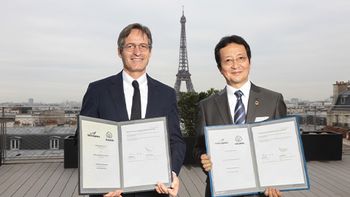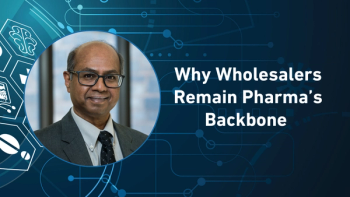
It's official: CVS Caremark is now CVS Health
Tobacco-free drugstores are just part of the story
Media coverage of the anticipated name change—including CVS Health’s own press release—put an emphasis on its earlier announcement to end sales of tobacco products, which will be accomplished ahead of schedule as of today (Sept. 3). But that’s only part of the changed direction that the company is following. Today’s CVS Health is essentially the marriage of two drug distribution channels—retail pharmacy and mail-order-driven pharmacy benefit management (PBM); and while other retail chains have PBM and mail order arms, there is arguably no company so dominant in both channels.
CEO Larry Merlo’s beginning-of-the-year stockholder’s letter recounts where the company is now: a $127-billion/yr “pharmacy innovation” company with four essential businesses: CVS/pharmacy; CVS/caremark; CVS/minute clinic and CVS/specialty. There are 7,700 stores; 900 walk-in clinics; and the CVS/caremark business covers 65 million lives, essentially one out of five Americans. The takeover of Caremark was highly controversial at the time, and for a couple years thereafter, Wall Street analysts anticipated a breakup of the merged entity. But Merlo noted that the proportion of Caremark patients who picked up their prescriptions through CVS/pharmacy stores rose from 18% in 2008 (at the time of the acquisition) to 30% in 2013. The growth of the Minute Clinic business in the intervening years puts CVS squarely into the healthcare-provider space; of course, all pharmacies (and pharmacists) consider themselves healthcare providers, but few retailers are so embedded in healthcare.
CVS/specialty’s business is expected to gross $26 billion this year—but here’s where its combination of PBM and retailing business must be walked carefully; the company is trying to manage PBM client costs while at the same time positioning itself as a preferred channel for specialty distribution and dispensing. The company also tucked in an infusion business, Coram, at the beginning of the year to expand its capabilities for dispensing those types of drugs.
Finally, it’s worth noting that, following the pattern set by Walgreens and AmerisourceBergen in aligning drug wholesaling and distribution activities, CVS Health has a
Newsletter
Stay ahead in the life sciences industry with Pharmaceutical Commerce, the latest news, trends, and strategies in drug distribution, commercialization, and market access.



